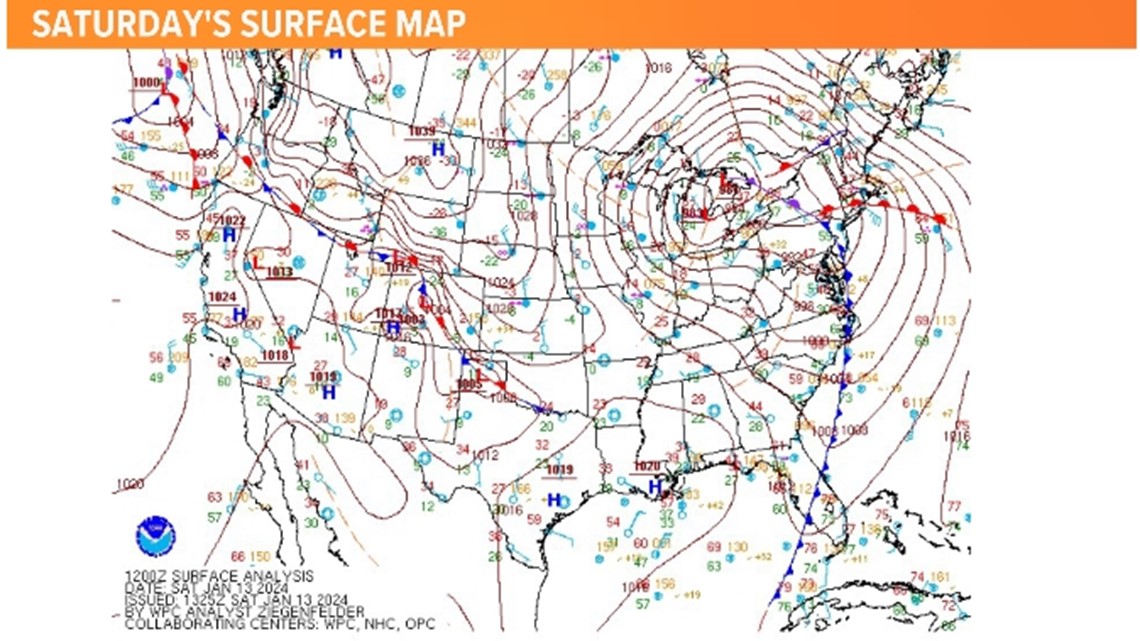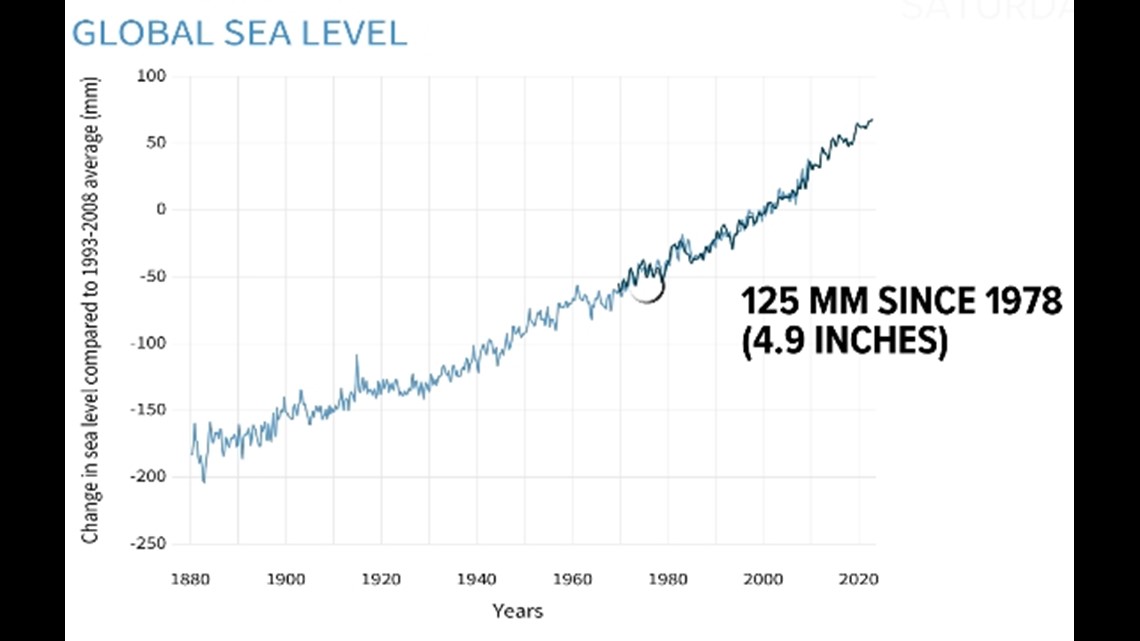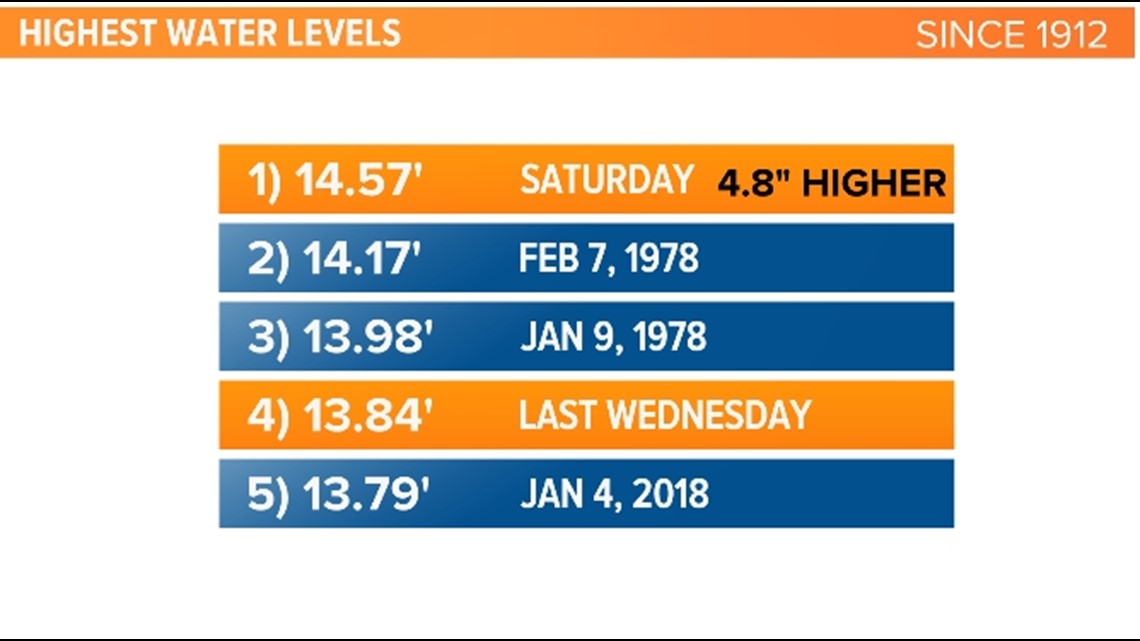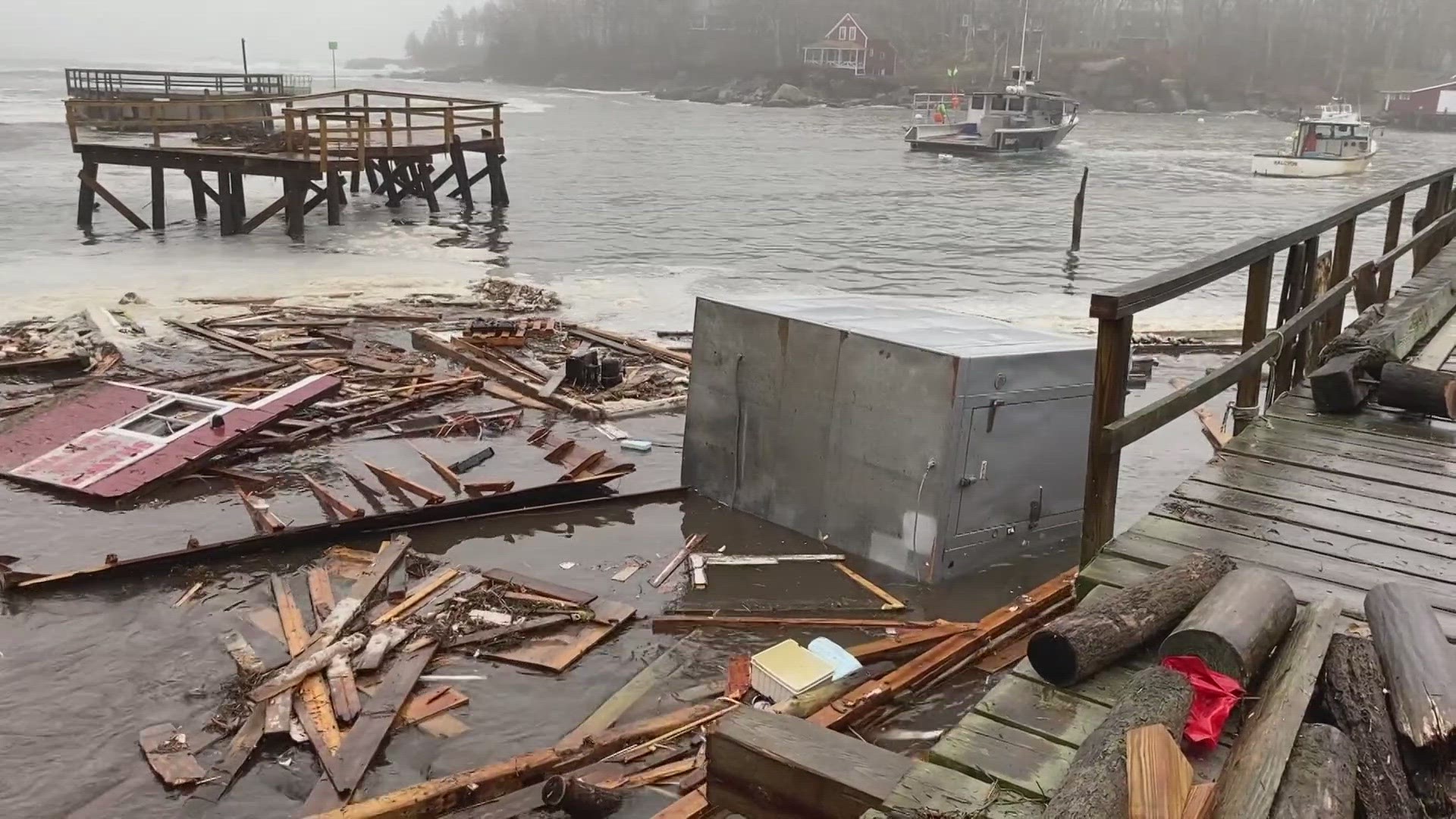PORTLAND, Maine — Not all extreme weather events can be tied to climate change. There has always been, through recorded history, damaging and extreme weather. However, some severe weather can be traced back to or at least enhanced by climate change.
Saturday's record flooding is one of those events. Let's review the data.
The first thing that's worth noting is the storm that came through Saturday wasn't particularly strong, meteorologically speaking.
The low-pressure system back in the Great Lakes region had a minimum central pressure of 981 millibars. Minimum central pressure is a reasonably good gauge of the strength of a low, and 981 mb. isn't particularly intense.
For reference Winter Storm Nemo, which brought Portland its all-time snowfall record in February 2013, had a central pressure of 968 mb. (The lower the pressure, the stronger the storm.)


This correlates to what we saw on the ground as well. Wind gusts around high tide on Saturday were only 30-35 mph, so the resulting water "shove" was not unusually intense.
So how did we break the all-time water level record? In short it's because of a combination of an astronomically high tide and sea level rise.
According to NASA, global sea level rise from 1978, which was the previous highest water level record, to 2020 was 125 mm (4.9 inches).


That number is amazingly well correlated with the record water level on Saturday. We beat the previous record by 4.8 inches.


That means we wouldn't have broken the record at all if it weren't for sea level rise since 1978. A clear sign that climate change had a lot to do with the impact of Saturday's storm.

